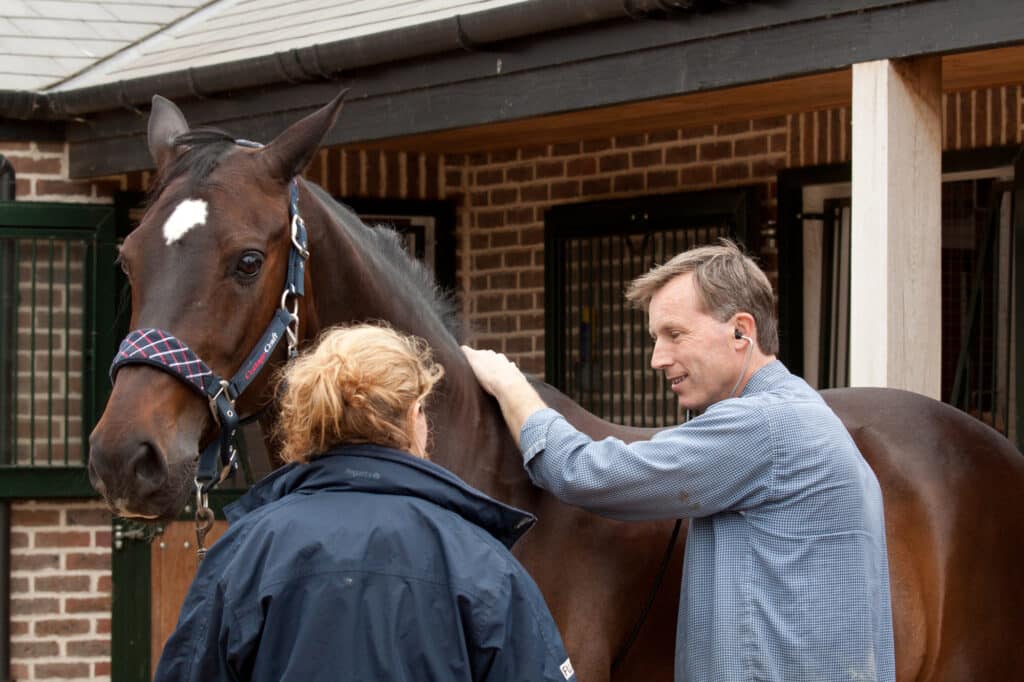News & Research
Study into pre-purchase exam study
A new study from the Royal Veterinary College has identified the most common findings in pre-purchase examinations of horses
New research from the Royal Veterinary College (RVC) has found that lameness is the most common prejudicial PPE finding in pre-purchase examinations (PPEs) in horses in the UK. It was also found that horses with a higher purchase price are more likely to undergo a five-stage vetting (5SV), compared to a two-stage vetting (2SV).
PPEs are performed for prospective horse buyers to identify any prejudicial findings that could make the horse unsuitable for its intended use – competitions, breeding or leisure riding. Although PPEs often follow a standardised process, the examination can only result in a recommendation based on the opinion of the veterinary surgeon at an isolated point in time.

Historically there hasn’t been much research into PPEs, however, it is hoped these new findings will encourage future studies into the merits of 5SV and 2SV PPE formats and the diagnostics used. This will help to better inform prospective horse buyers when considering their purchase.
133 PPE certificates were analysed from a mix of non-racing horses, from three first opinion equine practices. The RVC team, including Dr David Bolt, Senior Lecturer in Equine Surgery; Dr Jason Tupper, Head of the RVC Equine Practice; and Annabel Shelton (RVC BVetMed 2023 graduate), assessed the examination format (i.e. 2SV or 5SV); any diagnostic imaging obtained (e.g. radiographs); the purchase price; animal signalment; the horse’s intended use; the PPE outcome; and any prejudicial findings identified.
The key findings were:
- 57.1% of horses examined had prejudicial findings
- The most common prejudicial finding was lameness as the primary prejudicial finding (55.3%)
- Other common prejudicial findings included diagnostic imaging findings (14.5%); respiratory system findings (6.6%); skin conditions (5.3%); and cardiac abnormalities (3.9%)
- 68.5% of horses underwent a 5SV compared to 34.1% which underwent a 2SV
- Horses with a higher purchase price were more likely to undergo a 5SV
- Horses with a higher purchase price were also more likely to undergo pre-purchase radiography and more likely to have prejudicial findings identified.
Dr Jason Tupper, Head of Equine Practice at the RVC, and co-author of this research, said:
“A pre-purchase examination can discover a number of issues before buying a horse. This study reveals lameness to be the commonest issue. Few horses are perfect when it comes to temperament and health. The vetting process determines the issues and the vet can then help the purchaser weigh up their significance and decide if they can compromise and accept the issues or not. Further studies can now focus on the cost/benefit of radiology as part of the vetting procedure and the potential use of gait analysis.”
Dr David Bolt, Senior Lecturer in Equine Surgery at the RVC, and author of this research, said:
“Although this study only reflects a sample of all horses undergoing PPEs in the UK, the findings were very interesting and hopefully result in further studies about PPEs which could provide invaluable advice for people who want to purchase a horse.”
Further reading: Vetting horses: it’s not about pass or fail
